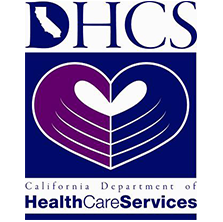Addicted Women: Drug and Alcohol Dependence and Treatment
What is addiction?
Addiction is a disease of the mind and body that causes an individual to use drugs and alcohol excessively, persisting even when the results are detrimental to this individual’s life. The disease of addiction is characterized by obsession with alcohol or drug use, a preoccupation which causes an addict to resort to any means to get high, even those illegal and immoral.
Alcoholism and drug addiction are two forms of the same chronic disease, a disease which plagues 8% of American men and women. Drug and alcohol dependence infects both the body and the psyche, making it a complex affliction. Physically, addiction manifests as the body growing accustomed to the presence of drugs or alcohol, thus redefining its baseline to include being under the influence. Once the body comes to associate its drugged state with normalcy, it requires more than the usual quantity of drugs to achieve a “high,” a phenomenon usually described as an increasing tolerance. When the body becomes accustomed to the presence of a drug, it is also in danger of experiencing withdrawal symptoms if the drug ceases to be ingested. These symptoms can vary from mild to extremely severe depending on the substance in question.
The psychological aspect of the disease is just as real as the physical component for addicted men and women. Drug and alcohol dependency causes a process to occur in the brain that is similar to the one which occurs in the body. The mind grows accustomed to the presence of a drug, which alters the way it processes information and functions. For most addicts, the altered state of consciousness achieved through drug use feels like a quick fix for deeper mental and emotional problems. Getting high and drunk may numb these mental and emotional pains temporarily, but it does not cure them. Once the brain becomes accustomed to the presence of drugs and alcohol, these substances are not as efficient as numbing agents, thus prompting increased drug use to achieve the same effect. When use is stopped entirely, the addict is bombarded with painful thoughts and emotions that have been waiting on the back burner for years, sometimes decades.
How is addiction different for women than it is for men?
For roughly 2.7 million American women, drug and alcohol abuse is routine, making women the fastest-growing group of substance abusers in the country. Though the disease of addiction has an equally severe effect on men and women, drug and alcohol dependence affects women in physically, mentally, and circumstantially grave manners that men tend to escape.
In the most basic physical terms, women get drunk and high faster than men due to lower body weight. With respect to alcohol, women are particularly disadvantaged. Because the female body produces lower levels of Alcohol Dehydrogenase, the enzyme that metabolizes alcohol, they reach a higher blood alcohol concentration than men after the consuming the same amount of alcohol (even when differences in body weight are accounted for). Studies also show that women become addicted to alcohol and drugs more quickly than men, and that women are likely to experience alcohol-related diseases like cirrhosis of the liver at a younger age than men with comparable drinking histories. When comparing the physical effects of addiction and alcoholism in men and women, drug and alcohol abuse undoubtedly leaves women with the short end of the stick.
Addiction also takes a psychological toll on the many women affected by the disease. Though depression is often a side effect of addiction for both men and women, drug and alcohol abuse is more likely to cause severe depression in addicted women. Low self esteem, a mental condition which can easily create a self-perpetuating cycle of destructive behavior, is also disproportionately experienced by female alcoholics and addicts.
Studies also report differences in the circumstances which led to alcoholism and addiction for men and women, drug and alcohol abuse presenting a welcome escape from family violence and incest for a large percentage of female addicts. These tragic circumstances tend to repeat themselves in the adult lives of addicted women, who report extremely high incidence of physical and sexual abuse by romantic partners.
Rehabilitation for Women: Drug and Alcohol Treatment at Safe Harbor
Once alcohol and drug addicted women come to terms with the fact that they need help, they face new obstacles in committing to treatment. A profound social stigma against coming clean about addiction faces women, drug and alcohol abuse being viewed traditionally as a problem that affects men. Domestic duties as wives, mothers and caregivers present barriers between women and the prospect of entering a treatment program. It is important for these women to face the fact that they cannot live up to their responsibilities in any of these roles if they do not address their addiction first.
All of these distinct aspects of addiction as it affects women make clear the dire need for treatment geared specifically toward the female experience of addiction. Safe Harbor Treatment Center for Women in Costa Mesa, California is a rehabilitation program designed especially for women who want to leave alcohol and drugs behind them and begin a new and healthy life.
Through a multilateral treatment program, Safe Harbor works to help women heal the wounds inflicted by addiction, as well as the wounds that persist from long before the first drink or drug. Structured therapeutic groups, individual counseling, life skills development and uplifting social activities allow women at Safe Harbor Treatment Center to subtract alcohol and drugs from their lives, while simultaneously adding new healthy and enriching elements.
For Safe Harbor’s courageous family of women, drug and alcohol dependence and the profound desire to overcome them are the fibers that hold the community together. With alcohol and drugs out of their lives, many women who complete Safe Harbor’s 90-day treatment program choose to dedicate themselves to being of service to newly sober women in the community, making use of their natural talent as caregivers. Safe Harbor Treatment Center for Women understands the tumultuous lives that female alcoholics and addicts lead, and is dedicated to providing a safe haven in which these women can heal and rediscover themselves in sobriety.
START YOUR JOURNEY WITH
SAFE HARBOR HOUSE
(310) 861-4157
Contact Us Today
Verify Your Insurance




